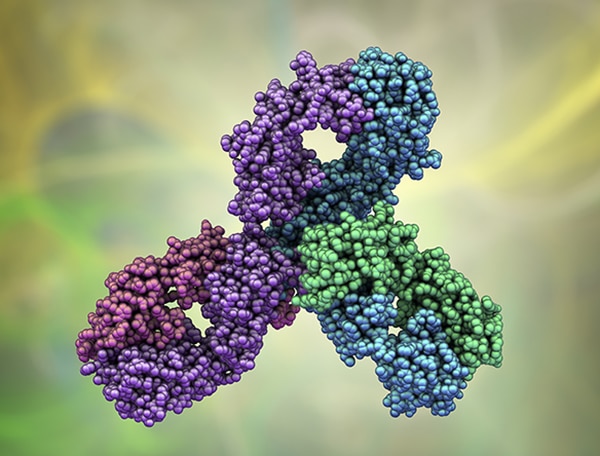A Second Adjuvant Immunotherapy Approved for Non-small Cell Lung Cancer
Pembrolizumab was approved to treat some patients with lung cancer after surgery and chemotherapy.
The U.S. Food and Drug Administration (FDA) has approved pembrolizumab (Keytruda) for the adjuvant treatment of stage IB, II, or IIIA non-small cell lung cancer (NSCLC) following surgery and platinum-based chemotherapy.

Pembrolizumab is a type of immunotherapy known as an immune checkpoint inhibitor. It prevents the interaction of the immune checkpoint proteins PD-L1 and PD-1, thereby reversing suppression of immune cells and allowing them to detect and destroy cancer cells. This is pembrolizumab’s fifth approval for NSCLC and the first approval for an adjuvant immunotherapy that does not require the NSCLC cells to express the PD-L1 protein. A similar immunotherapy called atezolizumab (Tecentriq) was approved in 2021 as an adjuvant treatment for NSCLC that expresses PD-L1.
The approval of adjuvant pembrolizumab is based on results from the multicenter, randomized, triple-blind, placebo-controlled KEYNOTE-091 phase III clinical trial. The trial included 1,177 patients with NSCLC who received either pembrolizumab or placebo every three weeks following surgery for up to one year. Of these patients, 1,010 had received prior adjuvant platinum-based chemotherapy, but none had received radiotherapy or chemotherapy before surgery.
Among patients who had received adjuvant chemotherapy, those treated with pembrolizumab had a median disease-free survival of 58.7 months, compared with 34.9 months for patients treated with placebo.
NSCLC is the most prevalent type of lung cancer. It was estimated that 236,740 individuals would be diagnosed with lung cancer and 130,180 would die of the disease in the U.S. in 2022.
The FDA rendered its decision on January 26, 2023.
